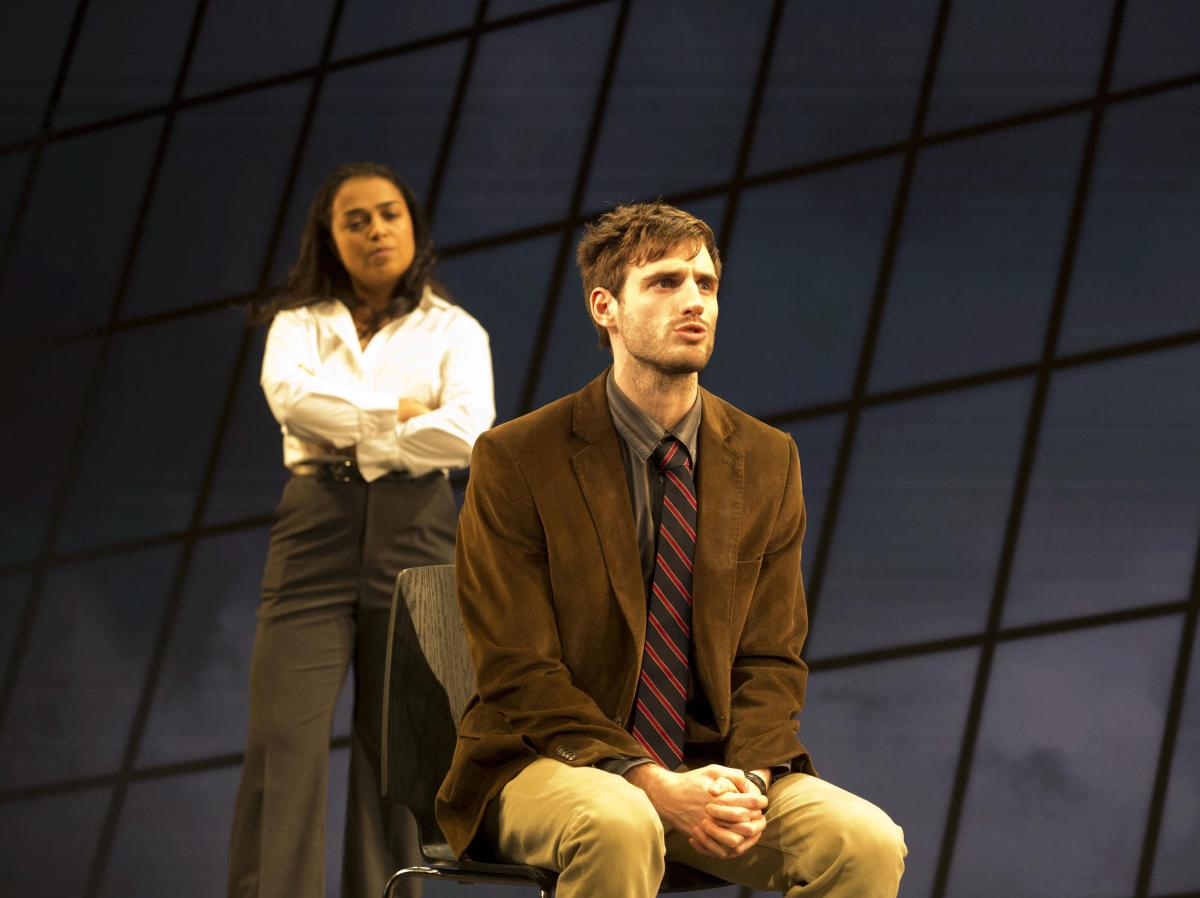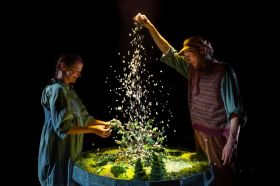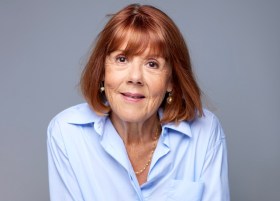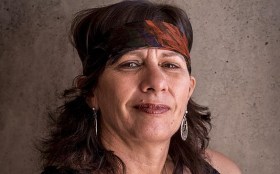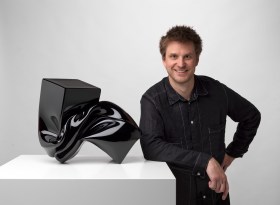Image: supplied.
The voice can be a powerful tool, but it can also impact the way men and women’s voices are valued and even judged. Debate on this subject usually focuses on vocal fry, when the voice creaks at the lowest vocal register. But the conversation on voice also examines other mannerisms that undermine a person’s authority, like run-on sentences and uptalk, which is when a person ends each sentence with a higher intonation, as if asking a question.
These discussion on voice highlights the gendered politics of language and speech, and how women’s voices in particular are intimately tied to issues of visibility, authority and perception.
In the performing arts, where the voice is trained to be both versatile and flexible, a strong voice is an important tool. This is why vocal coaches are employed to teach actors and singers how to control their voices, keep them healthy, and make them strong.
To find out more about the gender dynamics of voice and why it is important in the performing arts, ArtsHub spoke with Katerina Moraitis, Head of Voice at NIDA, where she teaches students how to use their voice for performance, or in other areas such as broadcast, directing, and speech therapy.
Find out more about NIDA’s MFA (Voice) course, which is now accepting applications for 2018.
As Moraitis said, it is not about whether vocal fry is right or wrong, it is about being aware of the choices we can make as actors and humans when it comes to how we communicate.
‘Ultimately voice is all about effective communication and the choice that you want to make in terms of your communication,’ she said.
Vocal coaching is about whole-bodied awareness, explained Moraitis. Because the voice involves every part of the body, from your breath to the tension held in your muscles, learning to control and use it in different ways means a different degree of self-awareness.
Imagine, for example, that you are smelling a flower.
‘As you smell the flower, your body organically reacts. It takes the breath deep into the body, allowing the lower lung to open up fully and the ribs to expand. By memorising the action and sensation of the beautiful breath that you’ve taken in from that organic response…all of a sudden you have an organic instruction that has opened the breath,’ said Moraitis.
‘You don’t have to do anything. The body already remembers and knows how to do it for you. All you have to do is memorise that action sensation, so that the next time you take a breath in through your mouth rather than your nose, you can feel the same musculature sensations that open the rib cage let the breath drop down into the lower rib.’
This is one of the many exercises students learn at NIDA to help them work on their breathing. ‘These things that feel good then allow us to train the body for creative expression,’ explained Moraitis.
‘When we work on someone’s voice we work on the whole human being – it is a holistic approach to the person, rather than just working on one area of the voice. It is so connected to your psychological, physical, spiritual makeup and your personality that we have to work on the whole human being.’
This whole-bodied approach to training the voice for creative expression involves releasing physical tensions, not just in the throat and vocal chords, but in other areas that impact voice.
‘When we work on the body, we work on releasing tensions – that is physical tensions in the musculature of the body that impede communication. It could be an area of the body such as the shoulders, head, and neck that are allowing the larynx to hold tension, which changes the quality of the sound. We work on releasing the muscles of the breath, so we place the breath well in the body so it can support sound and support the vocal folds.’
‘Once people get used to hearing their voice sounding supported and on tone, they begin to realise that the voice can be used as an instrument and they can make different choices.’
NIDA’s MFA (Voice) provides specialised, conservatoire-based practice and pedagogy for actors, theatre directors, teachers of speech and drama, speech therapists or those wishing to develop a voice practice as a vocation. Find out more here: https://www.nida.edu.au/courses/graduate/voice

